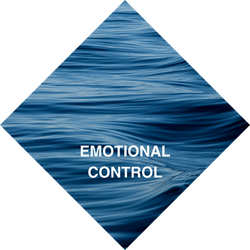
RESOURCES
Train your mind better to train your sport better
Sport Psychology is about breaking through barriers that hold us back. It is about unlocking psychological skills to develop your mindset.
The mark of great athlete is not how good they are at their best, but how good they are at their worst.
After a poor performance, it’s easy to get frustrated. You think: “Why wasn’t I concentrating harder?” or “I know I could have done better, why wasn’t I able to execute in competition the way I do in training?” The same thought patterns can crop up after an injury, major physical change, or returning to sport after time away. If things don’t improve, it can become a negative thought spiral: your performance dips and you’re no longer enjoying the sport you love.
You know 'it's all in the mind' but have no idea where to start.
Just like the physical side of sport, it’s all in skill building and practice.
PRACTICE, PRACTICE, PRACTICE
You wouldn’t tell a 100-meter runner to run 400 meters if they hadn’t run that distance in practice.
Like any other skills, mental skills are learned, practised, and honed over time. Mental skills practice can be integrated into daily training. And just like physical skills, you’ll start with the basics first and build up to be competition-ready. Think about these two scenarios:
It’s the day of the big game, and the player keeps missing baskets in the warm-up. Her coach says: "Relax, stay loose."
But the player hasn’t been training relaxation skills... She thinks: What should I relax? My muscles? My brain? How can I relax when I know how important this game is?
She can’t believe she’s missing baskets. This never happens in training. And today is way more important than training. She can feel her adrenaline pumping. Her mind starts thinking about what it will be like when they lose the match, she’ll be so disappointed.
Forget relaxation - she’s now completely lost in a negative thought spiral.
Today’s race is a qualifier. The cyclist knows he has to finish in the top ten to be able to race at the championships.
But his mind is racing - work has been stressful, and he can’t stop thinking about how much he doesn’t want to be there tomorrow. His teammate taps him on the shoulder and says “Get your head in the game, focus."
The cyclist takes a deep breath, holds it, and counts to five while he lets it out slowly. He’s been practicing concentration skills, and this breathing technique usually helps. He’s still feeling anxious, so he starts visualising the race. He visualises his last race, and thinks about that feeling at the finish line. Now he’s only thinking about cycling.
He knows how to do this. He’s locked in, entirely focused on the race.
BUILDING YOUR TOOLKIT
Have you felt like the basketball player or the cyclist? Do you have your own toolkit like the one the cyclist was able to draw on when he wasn’t able to focus? Each athlete can benefit from having their own mental tools that they’ve practiced, and that they know will work for them. Not every tool works for everyone - one athlete might love mantras but hate visualisation, while another is the exact opposite. Working with a Sport Psychologist, you’ll build your own unique toolkit that works for you.
 Visualisation / Imagery |  Breathwork |  Managing Anxiety |
|---|---|---|
 Emotional Control |  Helpful Routines |  Coping Plans |
 Effective Self Talk |  Resilience in the Face of Adversity |




